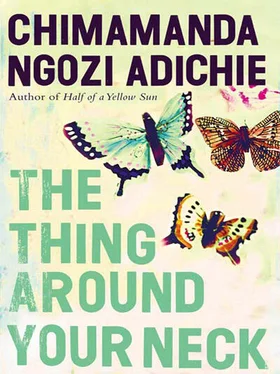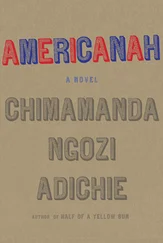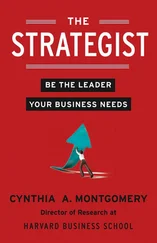They looked at Ujunwa and she realized that she was the only one who had said nothing, and for a moment the wine no longer fogged her mind. She shrugged and mumbled that there was really little to say about her father. He was a normal person. “Is he in your life?” the Senegalese asked, with the soft tone that meant she assumed he was not, and for the first time her Francophone accent irritated Ujunwa. “He is in my life,” Ujunwa said with a quiet force. “He was the one who bought me books when I was a child and the one who read my early poems and stories.” She paused, and everyone was looking at her and she added, “He did something that surprised me. It hurt me, too, but mostly it surprised me.” The Senegalese looked as if she wanted to ask more but changed her mind and said she wanted more wine. “Are you writing about your father?” the Kenyan asked and Ujunwa answered with an emphatic NO because she had never believed in fiction as therapy. The Tanzanian told her that all fiction was therapy, some sort of therapy, no matter what anybody said.
That evening, Ujunwa tried to write, but her eyeballs were swimming and her head was aching and so she went to bed. After breakfast, she sat before the laptop and cradled a cup of tea.
Chioma gets a call from Merchant Trust bank, one of the places her father contacted. He knows the chairman of the board. She is hopeful; all the bank people she knows drive nice secondhand Jettas and have nice flats in Gbagada. The deputy manager interviews her. He is dark and good-looking and his glasses have an elegant designer logo on the frames and, as he speaks to her, she desperately wishes he would notice her. He doesn’t. He tells her that they would like to hire her to do marketing, which will mean going out and bringing in new accounts. She will be working with Yinka. If she can bring in ten million naira during her trial period, she will be guaranteed a permanent position. She nods as he speaks. She is used to men’s attention and is sulky that he does not look at her as a man looks at a woman, and she does not quite understand what he means by going out to get new accounts until she starts the job two weeks later. A uniformed driver takes her and Yinka in an air-conditioned official Jeep — she runs her hand over the smooth leather seat, is reluctant to climb out — to the home of an alhaji in Ikoyi. The alhaji is avuncular and expansive with his smile, his hand gestures, his laughter. Yinka has already come to see him a few times before and he hugs her and says something that makes her laugh. He looks at Chioma. “This one is too fine,” he says. A steward serves frosted glasses of chapman. The alhaji speaks to Yinka but looks often at Chioma. Then he asks Yinka to come closer and explain the high-interest savings accounts to him and then he asks her to sit on his lap and doesn’t she think he’s strong enough to carry her? Yinka says of course he is and sits on his lap, smiling a serene smile. Yinka is small and fair; she reminds Chioma of the Yellow Woman.
What Chioma knows of the Yellow Woman is what her mother told her. One slow afternoon, the Yellow Woman had walked into her mother’s boutique on Adeniran Ogunsanya Street. Her mother knew who the Yellow Woman was, knew the relationship with her husband had been on for a year, knew that he had paid for the Yellow Woman’s Honda Accord and her flat in Ilupeju. But what drove her mother crazy was the insult of this: the Yellow Woman coming to her boutique, looking at shoes and planning to pay for them with money that really belonged to her husband. So her mother yanked at the Yellow Woman’s weave-on that hung to her back and screamed “Husband snatcher!” and the salesgirls joined in, slapping and beating the Yellow Woman until she ran out to her car. When Chioma’s father heard of it, he shouted at her mother and said she had acted like one of those wild women from the street, had disgraced him, herself, and an innocent woman for nothing. Then he left the house. Chioma came back from National Youth Service and noticed that her father’s wardrobe was empty. Aunty Elohor, Aunty Rose, and Aunty Uche had all come and said to her mother, “We are prepared to go with you and beg him to come back home or we will go and beg on your behalf.” Chioma’s mother said, “Never, not in this world. I am not going to beg him. It is enough.” Aunty Funmi came and said the Yellow Woman had tied him up with medicine and she knew a good babalawo who could untie him. Chioma’s mother said, “No, I am not going.” Her boutique was failing, because Chioma’s father had always helped her import shoes from Dubai. So she lowered prices, advertised in Joy and City People , and started stocking shoes made in Aba. Chioma is wearing a pair of those shoes the morning she sits in the alhaji’s sitting room and watches Yinka, perched on the expansive lap, talking about the benefits of a savings account with Merchant Trust Bank.
* * *
At first, Ujunwa tried not to notice that Edward often stared at her body, that his eyes were never on her face but always lower. The workshop days had taken on a routine of breakfast at eight and lunch at one and dinner at six in the grand dining room. On the sixth day, a blisteringly hot day, Edward handed out copies of the first story to be reviewed, written by the Zimbabwean. The participants were all seated on the terrace, and after he handed out the papers, Ujunwa saw that all the seats under the umbrellas were occupied.
“I don’t mind sitting in the sun,” she said, already getting up. “Would you like me to stand up for you, Edward?”
“I’d rather like you to lie down for me,” he said. The moment was humid, thick; a bird cawed from far away. Edward was grinning. Only the Ugandan and the Tanzanian had heard him. Then the Ugandan laughed. And Ujunwa laughed, because it was funny and witty, she told herself, when you really thought about it. After lunch, she took a walk with the Zimbabwean and as they stopped to pick up shells by the sea, Ujunwa wanted to tell her what Edward had said. But the Zimbabwean seemed distracted, less chatty than usual; she was probably anxious about her story. Ujunwa read it that evening. She thought the writing had too many flourishes, but she liked the story and wrote appreciations and careful suggestions in the margins. It was familiar and funny, about a Harare secondary schoolteacher whose Pentecostal minister tells him that he and his wife will not have a child until they get a confession from the witches who have tied up his wife’s womb. They become convinced that the witches are their next-door neighbors, and every morning they pray loudly, throwing verbal Holy Ghost bombs over the fence.
After the Zimbabwean read an excerpt the next day, there was a short silence around the dining table. Then the Ugandan spoke and said there was much energy in the prose. The white South African nodded enthusiastically. The Kenyan disagreed. Some of the sentences tried so hard to be literary that they didn’t make sense, he said, and he read one such sentence. The Tanzanian man said a story had to be looked at as a whole and not in parts. Yes, the Kenyan agreed, but each part had to make sense in order to form a whole that made sense. Then Edward spoke. The writing was certainly ambitious, but the story itself begged the question “So what?” There was something terribly passé about it when one considered all the other things happening in Zimbabwe under the horrible Mugabe. Ujunwa stared at Edward. What did he mean by “passé”? How could a story so true be passé? But she did not ask what Edward meant and the Kenyan did not ask and the Ugandan did not ask and all the Zimbabwean did was shove her dreadlocks away from her face, cowries clinking. Everyone else remained silent. Soon they all began to yawn and say good night and walk to their cabins.
Читать дальше











